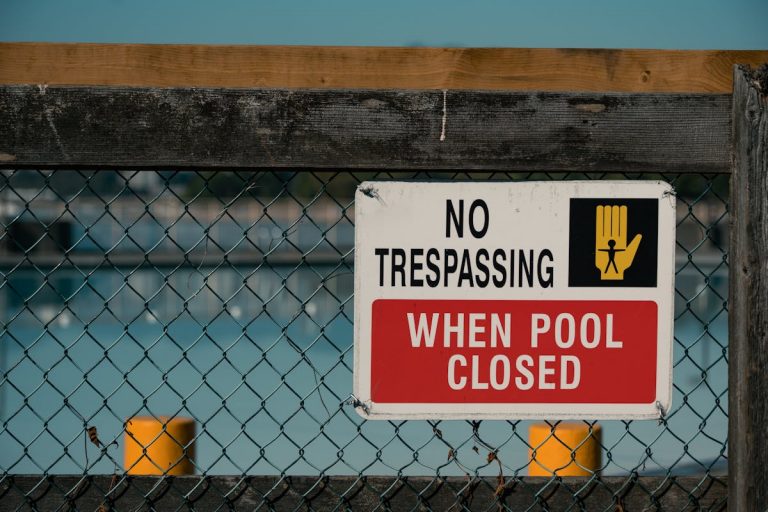In the complex legal landscape of Arizona, where issues of morality, personal freedom, and law enforcement intersect, the defense strategies employed against charges of prostitution are a topic of considerable interest and debate. Key defenses frequently invoked include entrapment, insufficient evidence, mistaken identity, lack of intent, coercion, and constitutional rights. Each of these defenses provides a unique lens through which to examine the intricate interplay of law, society, and individual rights in the state. As we explore these defenses in depth, we will uncover the subtleties and implications that lie within Arizona’s prostitution laws.
Understanding Arizona’s Prostitution Laws
The intricacies of Arizona’s prostitution laws can often prove enigmatic for those unfamiliar with the legal jargon. With severe penalties and wide-ranging legal consequences, understanding these laws becomes paramount for those entangled in related issues.
Arizona’s laws are stringent compared to other states. Prostitution is classified as a misdemeanor, and the penalties escalate with each subsequent offense. A first-time conviction could land an offender in jail for a maximum of 15 days. For repeat offenders, the punishment intensifies; a third-time offender could face a minimum of 60 days imprisonment.
The legal consequences of a prostitution conviction extend beyond incarceration. It can severely affect one’s employment opportunities, housing applications, and may even lead to mandatory participation in educational programs about the negative effects of prostitution.
Understanding these laws is not merely about decoding legal language, but about recognizing the profound impact they can have on an individual’s life. Hence, it is essential to appreciate the gravity of these legal consequences and prostitution penalties. This understanding will equip those involved to make informed decisions, seek competent legal counsel, and prepare a robust defense strategy.
Entrapment Defense Strategy
One often-deployed defense strategy against prostitution charges in Arizona is the assertion of entrapment. Entrapment occurs when law enforcement officers induce a person to commit a crime that they would otherwise not have been likely to commit. This defense is often complex as it hinges on the subtle distinction between a legitimate sting operation and improper law enforcement conduct.
Entrapment examples in prostitution cases often involve undercover officers who apply undue pressure or manipulation to coerce someone into offering sexual services for money. The defense argues that without such law enforcement intervention, the accused would not have committed the alleged crime. Consequently, the burden of proof lies with the defense to demonstrate that the individual was not predisposed to commit the crime.
Legal precedents, such as the Arizona Supreme Court decision in State v. Hudson, have affirmed the validity of entrapment defenses. In Hudson, the court held that entrapment can be a viable defense if the defendant establishes by a preponderance of the evidence that they were induced to commit the crime.
This strategy, while not without its challenges, can be a powerful tool in defending against prostitution charges in Arizona.
Insufficient Evidence Defense
While entrapment might be a successful strategy for some defendants, another potent defense in prostitution cases is asserting that there is insufficient evidence to support the charges. This defense primarily rests on the premise that the prosecution has not met the requisite burden of proof. This burden guarantees that no individual is unjustly convicted, a cornerstone of American jurisprudence.
The insufficient evidence defense is not merely a baseless claim; it is a well-calibrated argument that necessitates a thorough evidence evaluation. This involves a detailed review of the prosecution’s evidence to identify shortcomings or inconsistencies that greatly undermine their case. A meticulous evaluation can reveal where the evidence falls short in establishing guilt beyond a reasonable doubt, thereby rendering it insufficient.
Moreover, this defense is grounded in legal precedents. Many cases have been dismissed due to insufficient evidence, reinforcing its legitimacy as a viable defense. It remains critical, however, for the defense to successfully argue that the evidence presented does not conclusively prove the defendant’s guilt. This strategy can be particularly effective when the prosecution’s case is primarily built on circumstantial evidence or testimonial inconsistencies. In such cases, the insufficient evidence defense can be a compelling argument for the defendant’s acquittal.
Mistaken Identity Claims
Often, individuals facing charges for prostitution in Arizona can resort to the “Mistaken Identity” defense, a strategy that hinges on the assertion that the defendant was incorrectly identified as the perpetrator. This defense is usually invoked when the evidence, particularly eyewitness testimony, is not entirely reliable or credible. The defendant may argue that misunderstood circumstances led to their false identification and subsequent accusations.
In an era where surveillance systems and digital footprints are ubiquitous, inaccurate identifications can still prevail, primarily due to human error or bias. As a result, it becomes essential for the defense to challenge the credibility of the identification process, the condition under which the identification took place, and the witness’s trustworthiness.
The successful application of this defense can lead to an acquittal if the court finds reasonable doubt about the defendant’s identity as the offender. While it may seem like a simple task, proving mistaken identity requires meticulous legal strategy and compelling evidence. The defense must demonstrate that the false accusations resulted from flawed identification procedures, thereby convincing the court that the defendant was not involved in the alleged act of prostitution.

Lack of Intent Excuse
A significant proportion of prostitution cases in Arizona hinge on the defendant’s intent. In the courtroom, the “Lack of Intent Excuse” is a common defense strategy. This approach posits that the defendant did not intend to engage in the act of prostitution, thereby negating the essential element of intent required for a conviction.
The lack of intent excuse, while not always successful, can prove fundamental when the defense can convincingly argue that the defendant’s actions were misinterpreted or misunderstood. For instance, perhaps the defendant was in the wrong place at the wrong time, their actions misconstrued due to circumstances beyond their control.
Lack of consent further strengthens the lack of intent defense. If the defendant can demonstrate they were not a willing participant in the act, it supports their claim of non-intent. Intent clarification plays an important role; it focuses on whether the defendant truly understood the consequences of their actions.
To summarize, the lack of intent excuse can be a persuasive defense in Arizona prostitution cases. It contests the charge by challenging the defendant’s intent, bolstering the defense if lack of consent can be established.
Coercion or Duress Defense
The Coercion or Duress Defense forms a critical component of legal defenses against prostitution charges in Arizona. This defense asserts that the accused was forced into the act under extreme pressure or threat, negating the element of free will. To fully comprehend these defenses, it’s imperative to separately analyze the nuances of Coercion Defense and Duress Defense, their applications, and potential impact on the case outcome.
Understanding Coercion Defense
Steering through the intricacies of Arizona’s prostitution laws, one commonly encountered defense strategy is the Coercion or Duress Defense. This particular defense strategy is centered around the concept that the defendant was compelled to engage in prostitution due to the application of unlawful coercion tactics.
Examining closely, it becomes clear that the underlying basis of this defense is the absence of free will. The key factor in establishing a Coercion Defense is demonstrating the existence of an immediate threat or harm that left the defendant with no reasonable alternative but to engage in the illegal act of prostitution. This could range from physical threats to psychological manipulation, both potent coercion tactics that can effectively strip an individual of their ability to make free and independent decisions.
However, it’s important to highlight that not all forms of pressure will qualify as coercion under Arizona’s law. The threat or harm posed must be sufficient enough to instill fear in a reasonable person. As a result, the success of this defense largely hinges on victim awareness and their ability to convincingly demonstrate their perceived lack of choice. A nuanced understanding of these aspects can greatly impact the outcome of such cases.
Duress Defense Explained
Delving deeper into the complexities of the Coercion or Duress Defense, it becomes evident that understanding the nuances of this legal strategy is essential to its successful application. This defense entails the accused asserting they were forced or coerced into engaging in prostitution; as a result, they should not be held criminally liable. The legal implications of this defense are profound as it can considerably alter the outcome of a case.
Case studies reveal a successful application of the duress defense hinges on the ability to provide compelling evidence of coercion. The defense must convincingly establish that the accused was under immediate threat of harm or death, and had no reasonable means of escape. The threat must also be imminent and continuous, not sporadic or future-oriented.
However, this defense is not without its challenges. The burden of proof rests heavily on the defendant and convincing a court of coercion can be a complex task. In addition, the court will scrutinize the defendant’s actions leading up to, during, and following the alleged duress. Despite these challenges, the duress defense remains a vital legal strategy for individuals charged with prostitution in Arizona.
Invoking Constitutional Rights
A key approach in the defense against prostitution charges in Arizona involves invoking constitutional rights, specifically the rights to freedom of expression and privacy. These cornerstone rights, enshrined in the First and Fourth Amendments respectively, can become central to a defense strategy, given their implications in the context of adult consensual activities. This discussion will explore how these constitutional rights may be interpreted and applied in prostitution cases, potentially challenging the legal boundaries and societal perceptions surrounding the issue.
Freedom of Expression
Invoking the First Amendment of the U.S. Constitution, a common defense for prostitution in Arizona is rooted in the principle of freedom of expression. This defense postulates that engaging in prostitution can be viewed as a form of artistic expression, wherein individuals use their bodies as mediums to communicate and express their personal and emotional realities.
The argument hinges on the premise that sexual autonomy, a fundamental aspect of personal identity and self-expression, should be protected under the First Amendment. Advocates argue that the decriminalization of prostitution would allow individuals to exercise their right to freedom of expression without fear of legal repercussions.
A persuasive line of reasoning highlights the inconsistency in laws that permit other forms of potentially harmful self-expression, such as extreme sports or unhealthy dietary practices, while criminalizing prostitution. This perspective aims to challenge the societal norms that stigmatize and penalize sex work.
While the freedom of expression defense may not be universally accepted, it illustrates a compelling dialogue about the intersection of constitutional rights, artistic expression, and sexual autonomy. As the legal landscape evolves, accommodations for such defenses may play a pivotal role in shaping future legislation.
Privacy Rights Explored
Exploring the domain of privacy rights, another defense for prostitution in Arizona draws upon the Fourth and Fourteenth Amendments of the U.S. The Fourth Amendment guards against unreasonable searches and seizures, while the Fourteenth Amendment provides for the protection of personal liberties. These amendments, when applied to the issue of prostitution, can be seen to offer a shield against encroachments on privacy.
The privacy implications of these two amendments have been used to argue that what consenting adults do in private should not be the concern of the state, so long as no harm is inflicted upon others. This perspective derives from legal precedents which uphold the sanctity of personal privacy and autonomy. It posits that the criminalization of prostitution infringes upon individuals’ constitutional rights to privacy and personal autonomy, creating an undue burden on their liberties.
In essence, the invocation of privacy rights as a defense for prostitution hinges on the interpretation of the Fourth and Fourteenth Amendments. It asserts that the government’s intrusion into private, consensual sexual conduct between adults is constitutionally untenable. This argument, while controversial, adds a complex layer to the debate over the decriminalization of prostitution in Arizona.
Frequently Asked Questions
What Are the Penalties for Prostitution in Arizona?
In Arizona, penalties for prostitution, defined by legal definitions and prostitution laws, can range from jail time, fines, and mandatory education programs to probation. Severity of punishment often depends on the offender’s prior convictions.
Can a Minor Be Charged With Prostitution in Arizona?
In Arizona, the law protects minors involved in prostitution, recognizing them as victims of sex trafficking. They cannot be charged with prostitution, highlighting the state’s effort to prioritize minor protections over outdated stigmas around the legal age.
How Can a Lawyer Help With a Prostitution Charge?
A lawyer can provide invaluable assistance with a prostitution charge by employing effective legal strategies, advocating for the client’s rights, ensuring fair treatment, and potentially negotiating lesser charges or penalties.
What Are the Long-Term Consequences of a Prostitution Conviction?
Long-term consequences of a prostitution conviction include societal stigma, impacting personal relationships and employment prospects. Rehabilitation programs can help mitigate these effects, however, the conviction often leaves a lasting mark on an individual’s public record.
Can a Prostitution Charge Be Expunged From My Record in Arizona?
In Arizona, the expungement process for a prostitution charge is complex. Legal eligibility often depends on the specific circumstances of the conviction, including completion of sentences and rehabilitation programs. Legal counsel is recommended for such proceedings.





